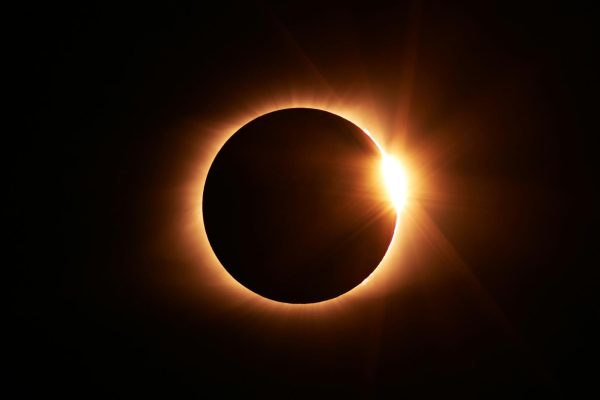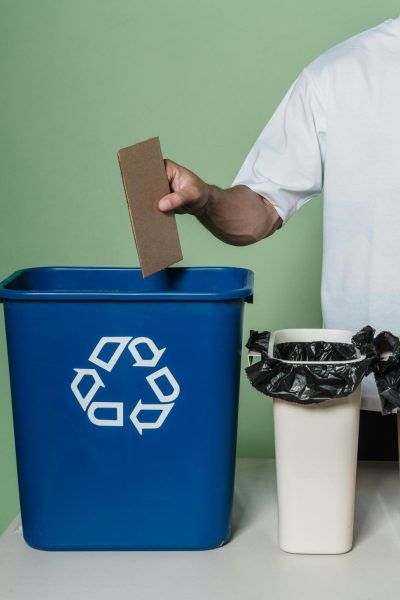Women in politics
After centuries of politicians being synonymous with white men, powerful women are paving the way to make politics more inclusive and diverse.
Remember being five-years-old. Ask yourself if you can recall your answer when people questioned what you wanted to be when you grew up.
“The first female president,” somehow always managed to find itself as a bullet point on the grocery list of job opportunities for most young girls.
Over 230 years after George Washington was elected as the first president, Americans still have not experienced a female president.
While many firsts have yet to be accomplished regarding women in politics, there are several women dedicated to shattering the glass ceiling.
This election year is groundbreaking as Vice Presidential nominee, Kamala Harris, could become the first United States female vice president and the first person of color to hold this position in office.
As Harris yields the pen to write a new chapter in history, it is important to recognize other influential political women who have paved the roads to lead her there.
Susan B. Anthony, first female Supreme Court Justice Sandra Day O’Connor, and Ruth Bader Ginsburg are some of the influential women who involved themselves in advocacy and various political ventures.
Because of their commitment towards women’s rights and representation, modern female politicians such as Hillary Clinton, Claire McCaskil and Nancy Pelosi, have the opportunity to become involved in politics and encourage ongoing efforts to make the political system a melting pot of diversity.
Many local female politicians are working hard towards making Joplin a safe and enjoyable place to live for citizens of different backgrounds and demographics.
Interest In Politics
As time progressed, people progressed too. Women were given rights to vote, to divorce their husbands, to open up a checking account without a spouse, and to join male dominated fields.
The ability to gain independence and hold a voice of their own was a catalyst of change for women.
With this freedom, women decided to become involved in assisting in the creation of laws and becoming present in politics.
A few influential female Joplin politicians and a political reporter in Washington D.C. explained what attracted them to politics.
“Social activism has always been what drew me into politics. How can we fix problems related to our environment, social justice, or access to amenities and equity? I didn’t really correlate that with politics until recently when I got involved in curbside recycling campaigns and school bonds and seeing how politics can be a vehicle to get things done,” said Christina Williams, board member on the Joplin City Council.
Joplin’s previous Mayor,
Melodee Colbert-Kean explains she never had an interest in politics.
“There wasn’t an interest, I answered a call,” said Colbert-Kean.
“There was a five seat opening for the city council in 2006, and I was asked to join to represent the black community. I agreed to do it.”
Diane Reid Adams, Joplin City Council member, was elected to be on the Joplin City Council in 2018.
“My dad was a member of the council fifty years ago,” said Adams.
“I was always interested in politics, and in Nov. 2017, I saw the city council had an opening so I turned in my petitions. I had no idea I would win.”
While some women fight to create change in our country, some are driven to tell their stories.
“I was drawn into politics when I came to work in D.C. When you’re in D.C. you can’t escape politics, and I love it,” said Anna Weirnicki, Washington correspondent.
“I witnessed a presidential election, then decided I wanted to be involved in some way. I want to show people what matters and why,” said Weirnicki.
Historical Women
As the only woman in the political science department at Missouri Southern, Dr. Shoaf sheds her insight to women in politics.
“People say they support women in powerful positions, but time after time we are shown that is not the case. They’re afraid of women in politics,” Shoaf said.
As women gain independence, they create new norms and expectations.
“Women weren’t allowed in that world. They had other expectations. The typical rearing of children and being put into jobs made for women, like teaching and nursing and things like that.
I think women of my generation, Gen X, we just didn’t grow up that way. A lot of our moms did work. We were allowed to have opportunity if we wanted it. Whatever I wanted to say or think or do was fine,” said Williams.
An understanding for society and desire for inclusion didn’t always exist. While women were gaining political rights, they were not expected to partake in them.
“Even after women got the right to vote, their husbands still influenced their decisions,” said Adams as she explained why women weren’t heavily active in politics during the majority of the 20th century.
Acceptance from males has been necessary in a woman’s ability to become a politician. Williams said its important for males to use their privilege to lend a hand towards women who are considering a career in politics.
“You remove the competition, that if a man can be secure in who he is, and then allow his female companions or friends to be the best they can be as well, it’s a big deal,” said Williams.
“If the men in my life weren’t supportive, I wouldn’t be where I am today.”
It isn’t enough to have male approval, however, as many men are still hesitant towards having a female politician influencing the legislature. A woman must demand her own presence and find her voice as well.
Experience in the Field
Women make up 51% of the population, but only make up a small number of the elected positions. While the representation isn’t as bad as it’s been, we still see internalized misogyny affect who we elect at the polls.
“We are trying to shape a culture that, when visioning the president, still invisions a tall, white man,” says Shoaf.
Women won the battle when they fought for an opportunity to become involved in politics.
The war is ongoing, however, as they face challenges in being accepted by their male colleagues and citizens who are weary of change.
“When I was first elected, my male colleagues did not respect me,” said Adams. “At first, they didn’t even acknowledge when I was in the room,” said Adams.”
Adams said the Joplin City Council members will gather for dinner and eat together before their meetings. Adams described being left out of conversations and how she felt unwelcomed. Eventually, Adams was able to create friendships and gain respect from the male members of the council, but she emphasized how often they do not agree.
“Even just stating commentary and giving interviews, since it isn’t mainstream, we as women have to double down output and knowledge twice as hard to get the same respect as men already have,” said Colbert-Kean.
Sexism
Women are consistently asked about the same three topics: husbands, homelife, and hemline. When Hillary Clinton was running in 2016, she was constantly asked to apologize for her husband’s “sins.”
When her daughter Chlesea Clinton had her first child, The Washington Post ran an article titled “Grandmother in Chief” and asked how could Clinton be president and a good grandmother.
Yet, these instances are worse for women of color and other disenfranchised groups. Take Vice Presidential nominee, Kamala Harris, for example. Harris topped headlines for wearing chucks. Journalists inquired if it had a deeper meaning.
Dr. Shoaf laughs and says, “The woman is on her feet for 18 hours a day! Couldn’t she just be tired?”
“When a woman of political power tends to speak up in Washington, for a while she would receive more criticism on appearance,” said Wiernicki.
Men didn’t have that. Now when I see a woman in a power seat, I don’t think, ‘wow, a woman,’ I just expect it.”
Wiernicki said women were often criticized for using a more aggressive tone.
“Women have to worry about being labeled as ‘bitchy’,” says Shoaf, “but Kamala is in a double bind. She, unfortunately, has to try not to be the ‘angry black woman’.”
Colbert-Kean shared similar views with Shoaf during her experience as mayor.
“I found that you could be labeled as angry or loud when you’re really being passionate,” said Colbert-Kean.
“For me, it was an angry black woman, but for others it was considered passion. My statement isn’t valid enough, a white male must restate it.”
Minority Experiences
“We are beginning to see more women of color in politics,” said Wiernicki.
“Not to the degree we’d like, but women like Kamala Harris, are so important and we are beginning to see it happen,” said Wiernicki.
Cultural diversity is necessary in creating a more inclusive political system.
By including people from different backgrounds in political positions, Americans are educated on issues that do not always apply to them and positive changes can be made in the lives of minorities.
“Kamala Harris is an influential woman of color, who is not only black, but she is Asian as well. I think she may, as Vice President, have an influence in calming racial violence,” said Adams.
Colbert-Kean believes people of color would benefit from being involved in politics through representation.
“By being the voice, and being ourselves,” Colbert-Kean said, expanding on how politicians of color can affect the lives of minority citizens.
“Just as you have so many diversities, whether it’s age, sex, or color, you have to have representation for all of that because no one group understands – the more representation, the better,” said Colbert-Kean.
Another importance of minorities holding a place in office is making efforts toward ending systematic racism.
“It went from sheets and hoods to business uniforms. It never went anywhere. By and by, it’s still there,” said Colbert-Kean.
“A mechanism was never provided to combat segregation, to challenge it.”
The previous mayor went on to explain that racism isn’t always recognized, “we abolished slavery, now we imprison the black male,” referring to the astonishing rate of incarcerated black men.
While people of color are becoming more present in politics, the LGBT community still struggles to catch up.
“At this time, Joplin is too Conservative for a transgender woman council member.
I feel like it will happen someday, but most likely LGBT politicians will become more common on the coasts before the Midwest,” said Adams.
Advice for Future Female
Politicians
“I have to make them understand the horrors of women in politics. Missouri has never had a female governor, and there’s a reason for that,” said Shoaf, when asked how she prepares her female students for taking on roles in Political Science.
“Get involved with nonprofit organizations, maybe join a board like a city board or commission, that’s where you start,” said Williams.
“Join YPN at the chamber. Start building that network because you’re less likely to get elected if you don’t know people. Networking is so important,” said Williams.
Networking creates a stronger support system and allows the opportunity to spread messages and purpose. Though, it isn’t just about who you know, but what you know as well.
“Focus on your education. Political science, sociology, history, economics; be familiar with these subjects and have a solid background,” said Adams. You will face descrimination, so you have to try to be twice as smart as men to get by.”
Colbert-Kean encourages anyone who wants to see change to become a part of it.
“You want your voice heard? Get inside the system,” said Colbert-Kean.
“Get involved, go for it! We need our voices heard at local, state, and federal levels. We need a collective women’s voice to represent. We belong there also, because why wouldn’t we?”
While acceptance and equality among women in politics are still ongoing issues, strides have been made by powerful women to at least give them the ability to demand a presence in the field.
Because of these women, a little girl who dreams of one day becoming the President of the United States, has the opportunity to make that dream come true.
Your donation will support the student journalists of Missouri Southern State University. Your contribution will allow us to purchase equipment and cover our annual website hosting costs.





















